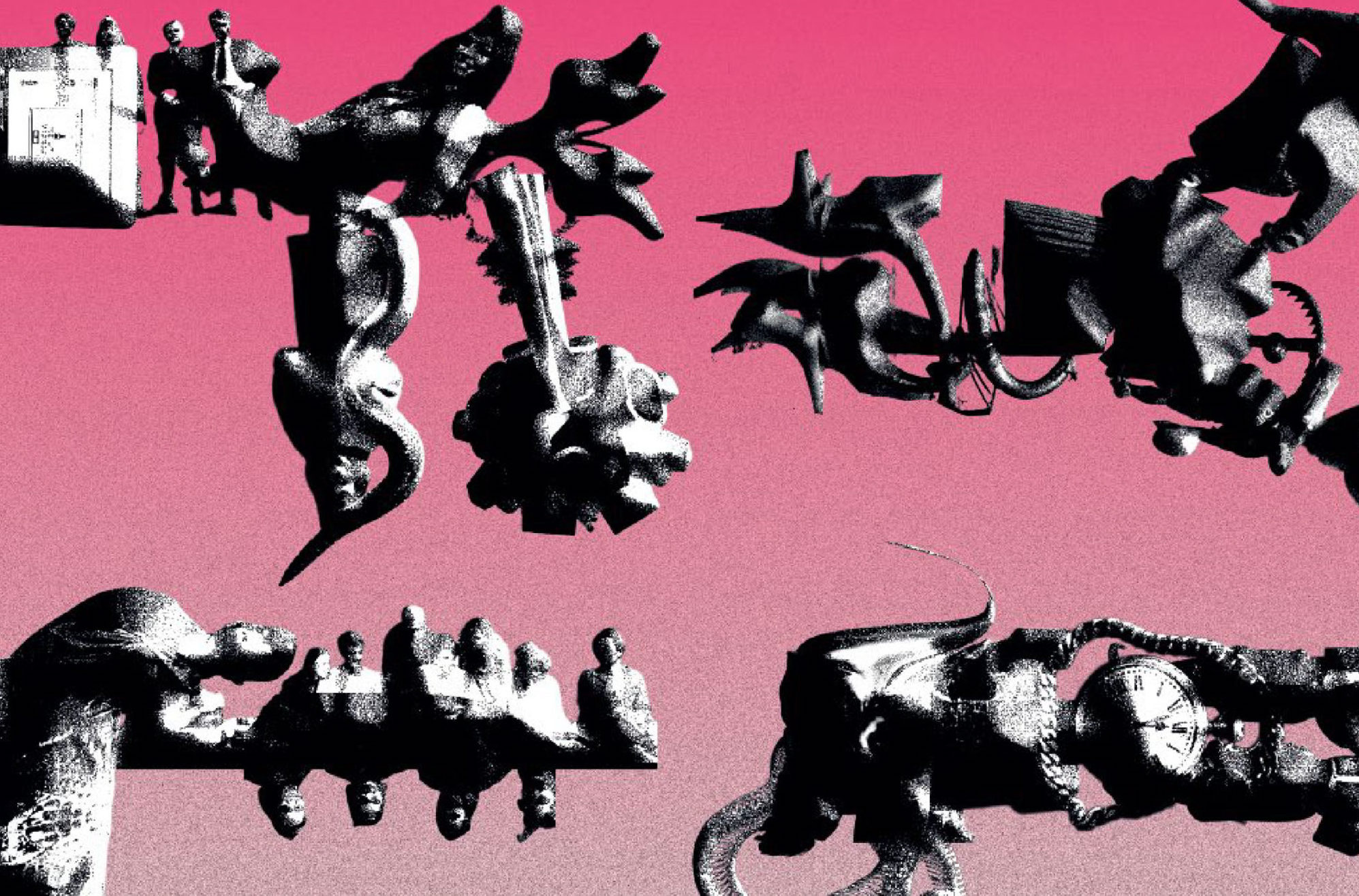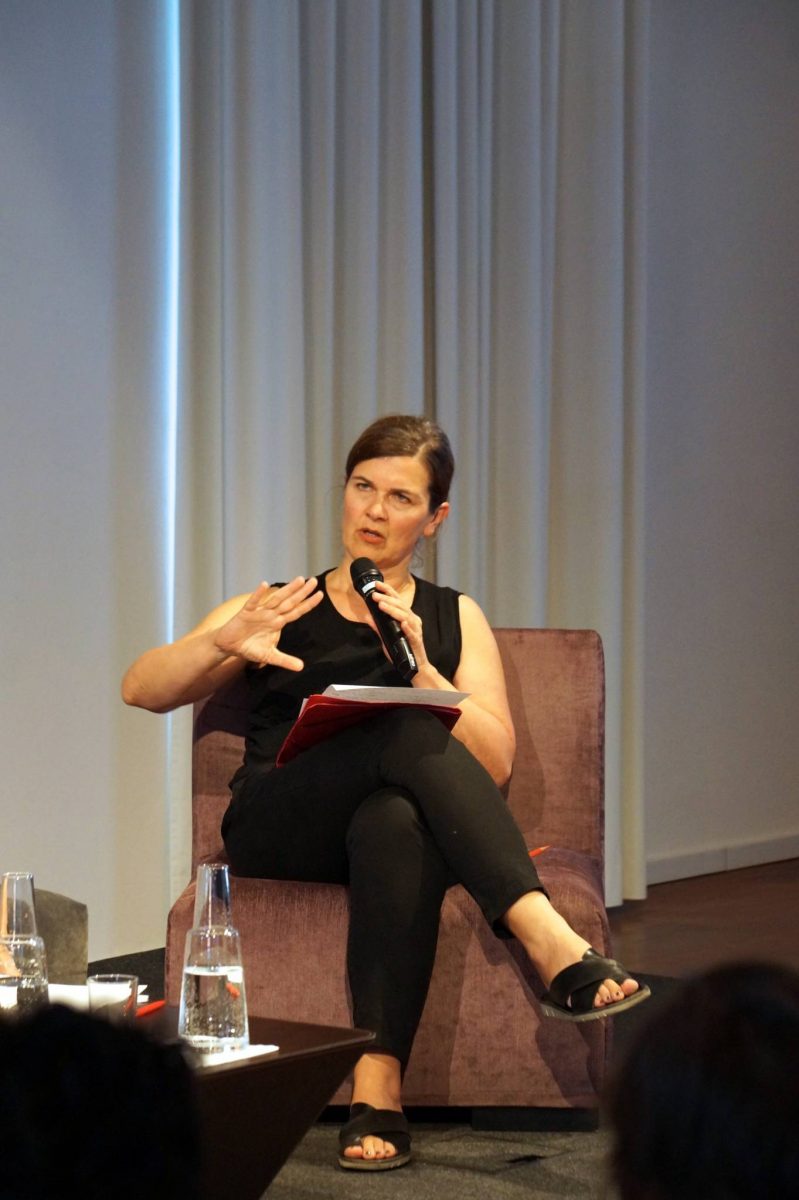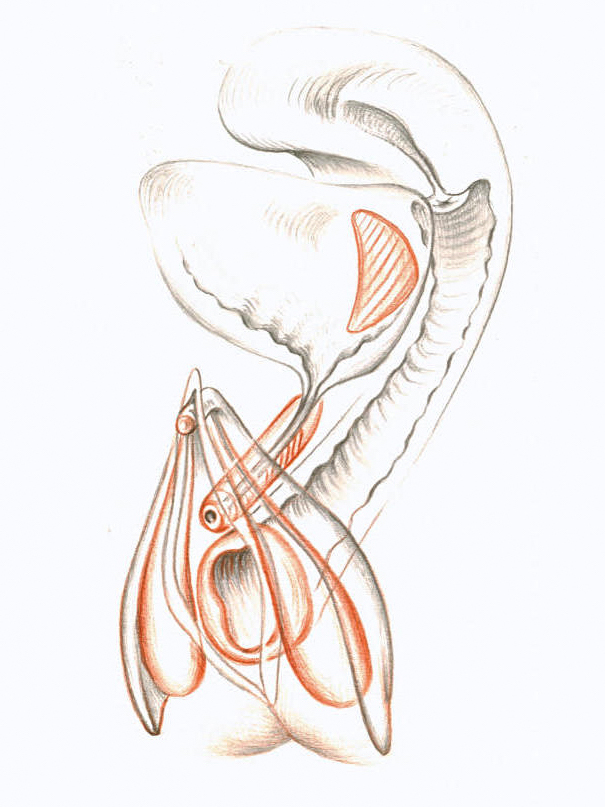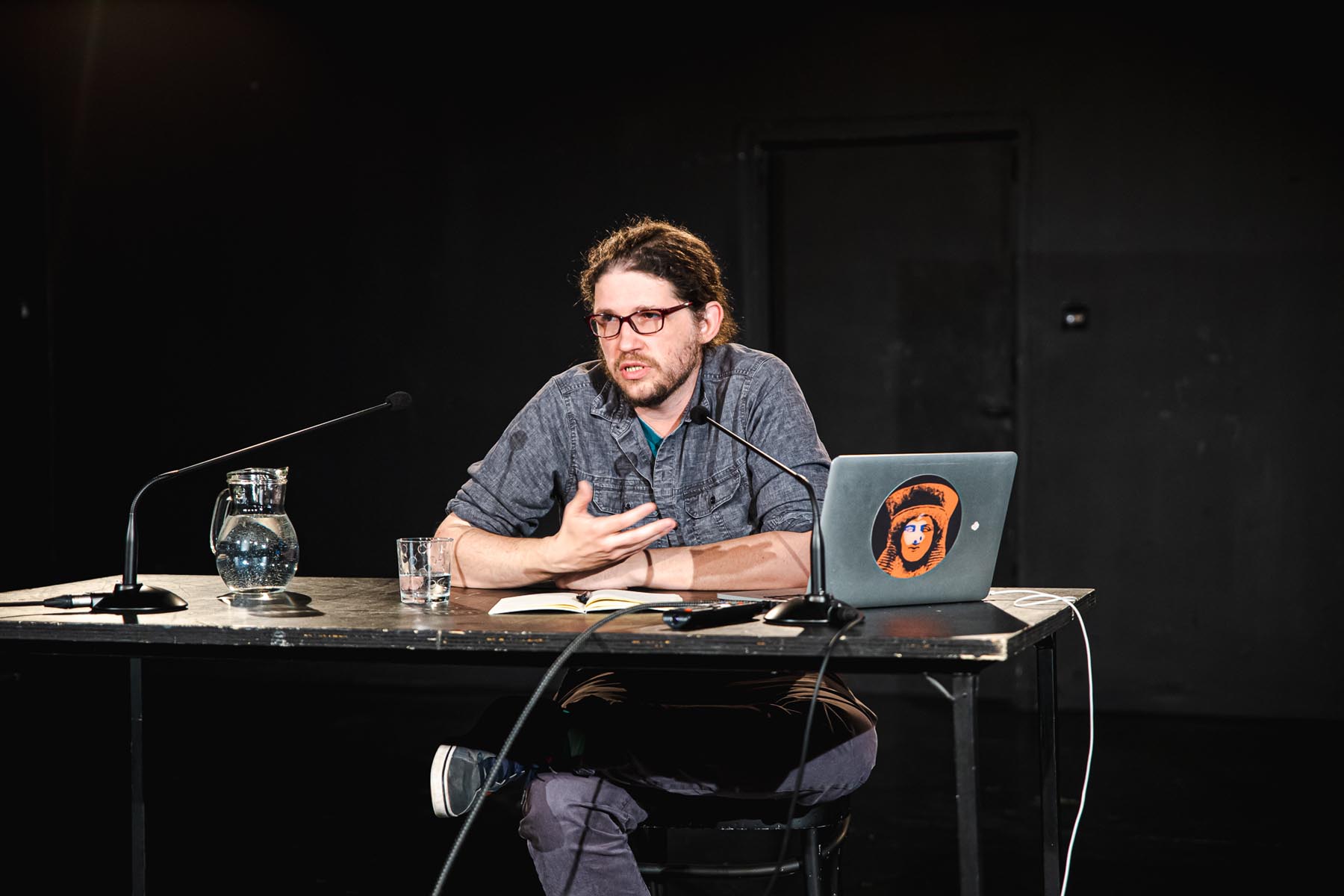That just leaves …

This year, Maska envisioned its seminar as a series of lecturing duos who are connected either as friends, by topic, or purely in form. This dual enables a different, a dialogical and fluent work and thought. The COVID epidemic and the consequential self-isolation disabled the year-long duration of the seminar, breaking and atomizing the pairs. This is why Maska’s seminar morning will present the chips of this year’s seminar in the form of one independent half-hourlong lecture and one lecture in a pair.
Following the seminar will be a presentation of the latest Maska issue entitled Eviction of Culture.
1.7.2021, Nova pošta
Programme
11.00
Eva Smrekar: Theatre Sculpture – Sculptural Theatre: Hysteria, Gesture, Modernity
12.00
Blaž Kavšek and Aleš Mendiževec: The Author is not Dead, the Author is Bad
14.00
LUNCH BREAK
16.00 – 17.30
EVICTION OF CULTURE
A presentation of the latest Maska issue (201–202)
Eva Smrekar: Theatre Sculpture – Sculptural Theatre: Hysteria, Gesture, Modernity
At the end of the 19 th century, the neurologist and so-called “Napoleon of the neuroses” Jean- Martin Charcot reformed the Parisian hospital La Salpêtrière, starting a fruitful relationship between the strategies of clinical practice of modern science, art, the constitution of the female body and sexuality, and the forming of new performing forms of the developing popular culture in the modern capital. The study of (female) hysteria, which included a photographic and graphic documentation, as well as weekly public demonstrations of the female patients, bore decisive influence on the new dance and performing forms present and established in the spaces of modern models of spending free time, especially in cabaret. By using gesture as the central node of translating the ideas of a modern subject, sexuality, social choreographing, and epistemological classification, we will follow a typology of the hysterical body from Charcot’s amphitheatre and the cabaret performances including dance and spoken word. At the same time, we will be interested in this turn-of-the century transformation of the hysterical body mechanisms into a body of new performative practices using hysteria to articulate a specific relationship with its own present and current situation.
Aleš Mendiževec: Henry Miller or How to Be a Bad Author
“Jebe se mi, ali me razumejo deloma ali v celoti. Pišem zato, da izrazim svoje občutje. Če me pri tem razumete, toliko bolje. Biti razumljen je stranski proizvod. Ne pišem zato, da bi me razumeli. Pišem zato, da se me občuti kot silo, tudi da sporočam, če hočeš. Načeloma pa pišem iz samega veselja pisanja.” The lecture will attempt to explain this excerpt written by Miller and give hints to answers on Miller’s literature. Why is sexuality not so important? What is spiral form? Why doesn’t it have sense to interpret Hamlet? How can the first-person singular break an autobiography? Etc.
Blaž Kavšek: The Slovenian Writer of the 19 th Century – A Victim of Their Own Nation?
Slovenian literary history is full of implicit assumptions that the authors of (especially late) 19 th century were (not) artistic. The discussions are often uneasy when it comes to dealing with literary life of that period. If we exaggerate a little: the yoke of nationalism supposedly transformed the lively creative forces that could potentially have led to an autonomous, cool, individualistic, funky, normless and unnormal, exceptional, and modern art or artistry, turning them into dull utilitarian, provincial, lame, pre-modern depression. The lecture attempts to re- evaluate the relationship between the two extremes and emphasize certain teleological assumptions that helped establish such dichotomous schemes and consequently brought on the mentioned unease.
A presentation of the latest Maska issue (201–202)
The title of the latest Maska issue is no metaphor. There is an actual active eviction of culture going on. It is not only limited to M6 but is happening everywhere and systematically. This is why there was no choice when it came to deciding the topic of the issue. The topic was chosen by necessity as we must first ensure existence in order to later follow content that defines our mission and interests. The already shrunken spaces of non-governmental culture and art are not only increasingly narrower, the spaces of creativity, theory, and art production erased from the map overnight (or in broad daylight) – all of this is done in the name of “balance”.
We will be joined by authors of articles: Vid Bešter, Kaja Kraner, Tjaša Pureber, Anja Radaljac, Rok Vevar, Tomaž Zaniuk
Moderated by Pia Brezavšček and Rok Bozovičar, Maska editors











